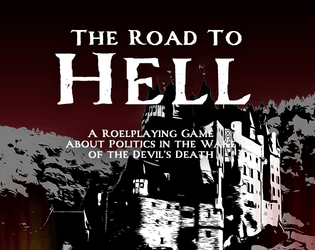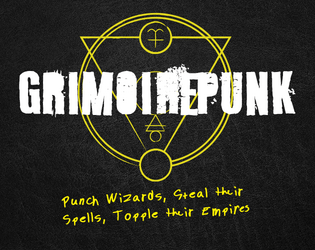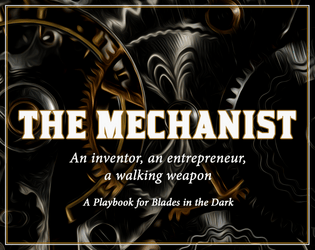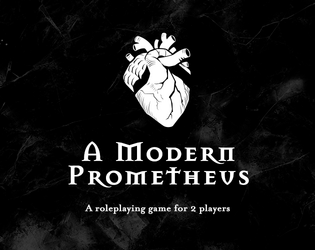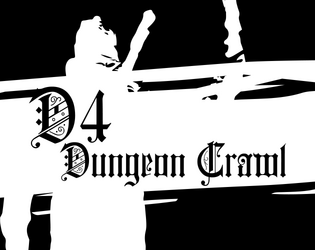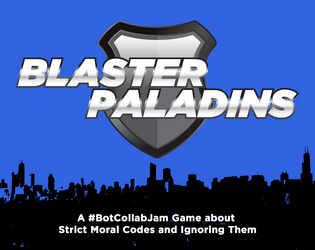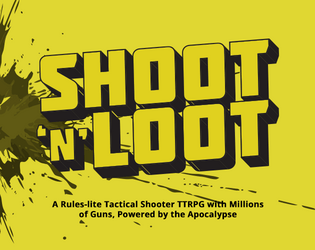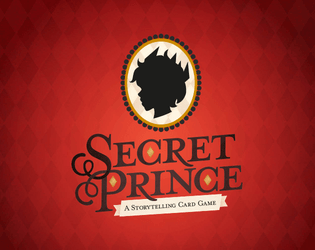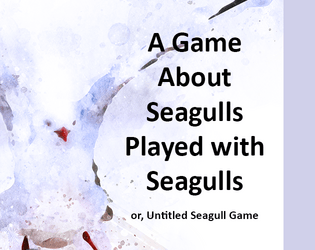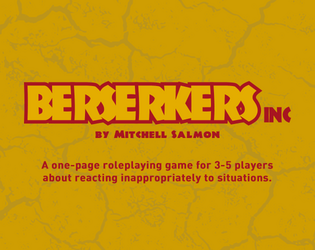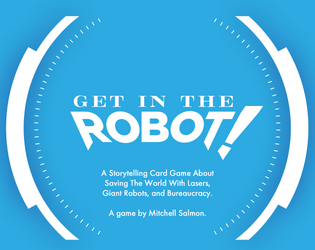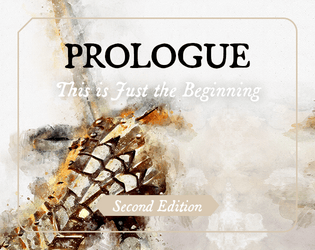Great idea! I've added a Google Drive link to the downloads which contains all the card images in .png format. Shout out if you have any issues. And have a fun game!
Games by Mitch
Creator of
Recent community posts
So glad you had a great time! Your art is brilliant, and your story sounds fantastic! 🫀
Glad you felt confident making changes to the minigames on the fly! That's highly encouraged, and I think I need to add a bit more space for that in the game rules; you're not the first person to feel their story was too constrained by some of the assumptions in the game structure. 😊
Face cards are just high value words - they get removed from the deck during character creation so that you don't start with all your most powerful cards (if you were lucky) and have room for your grimoire to become more powerful as well as more flexible. But if you have ideas for additional effects, absolutely add them in!
Thanks so much for this review! 😁 I'm so glad you enjoyed your game! For more games in the same style, you should check out Mobile Frame Zero: Firebrands, the OG game using this system—that may scratch the itch for more stories in different settings!
Hey, this game is very cool. I'm blown away by the amount of setting detail you developed in such a short amount of time!
I'm sorry if I missed it, but I can't find in the document what your core resolution mechanic is? When there's a challenge, what do players do to determine success or failure? I understand how to calculate my bonuses based on my stats, but is it a "roll d20 + stat bonus", or something else?
You've hooked me with your premise, I think it would be worth (when you want, and have time) to flesh out some of the mechanical elements to help me, the player, tell stories that fit in your setting.
Hey Game Dunk community, I've roughed out my game submission, and I'd love some thoughts and feedback, if anyone's interested in reading it! I think it could do with another edit to make it a bit more punchy, and do more to make the descriptions exciting. I'm also curious if you think there's enough meat to make it playable. Does there need to be a challenge-check mechanic for non-magical things, do you think?
This game is great, and you should buy it. Preparing 4 Paris embraces the messy entanglements and relational drama of the Firebrands framework to create goofy high school adventures with real heart, and Logan innovates on the framework by blending in stats and dice rolls that give a strong cohesion to the overall story. The veneer is silliness, but the core is deep, strong relationships between characters, and the frameworks to help players pull these off in satisfying, and safe, ways. It's a joy to read, and even more fun to play.
(Disclaimer, I'm a contributor to this game as a stretch goal minigame writer. But I loved it long before I had a chance to write for it)
My question for people more experienced with BitD/FitD playbook design (everyone) is, are there elements that every (or almost every) good playbook should have in its special abilities? For example, should every playbook have a push yourself move? Should every playbook have a move that increases effect? Should every playbook have a Ghost move (like the core playbooks do)? What do you think?
Hey all, I just submitted a playbook to this jam, the Mechanist, which is my BitD-steampunk take on Iron Man. I've never done any design for BitD or FitD, so I'm really keen for any feedback or thoughts people might have. I think, in particular, I leaned heavily on PbtA style move design over the more specific BitD mechanics; there's not much in the way of moves around pushing, or effect, or the Blades-specific mechanics like Heat or stuff. What do other people think? https://mqsalmon.itch.io/mechanist




